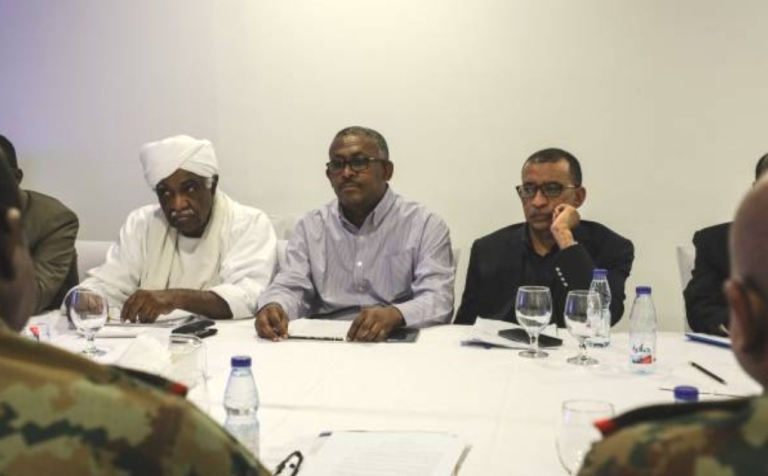Sudan’s FFC forms enhanced leadership structures

November 4, 2019 (KHARTOUM) – The ruling Forces for Freedom and Change (FFC) announced the formation of a new organizational structure to cope with the needs of its leading role during the transitional period.
The move follows long-standing disputes during which major coalition forces opposed the restructuring, including the Sudanese Professionals Association (SPA), the spearhead of the protests, and the Sudanese Communist Party (SCP).
In a press conference held on Sunday, the FFC official spokesman, Wajdi Saleh, announced that the protest movement groups agreed to form a Central Council and a Central Coordination before to add they have agreed on the members on the two bodies, the rapporteurs and the coordinators of the committees.
According to the sealed deal, the Central Council is the FFC supreme political leadership body consisting of five representatives of the SPA, the Sudan Call, and the National Consensus Forces (NCF), n alliance of the lest groups, three representatives of the Unionist Gathering, the Civil Forces Alliance, and one representative of the Center’s Stream and the Republican Party. In addition to a number of seats for the Sudanese Revolutionary Front (SFR) to be determined after consultations with its leadership.
Normally, the SFR is part of the Sudan Call, but this decision aims to avoid past accusations that the Sudan Call’s political groups had taken the lion’s share in the FFC leadership body as it was said before.
The new structures include further a Coordination Council which is the FFC executive body. It consists of three representatives of the SPA, NCF and the Sudan Call, two members of the Unionists’ Gathering and the Civil Forces Alliance, one representative for the Republican Party and the Center’s Stream. The SRF representatives will be determined later.
Also, the FFC agreed to form an Advisory Council that will control and give counsel to the Central Council. It will consist of all the signatories of the FFC Declaration.
Munzir Abu al-Maali, an FFC leading member told “Sudan Tribune” on Monday that the new structure of the large coalition was necessitated the need to implement the programme of the transition period.
“Therefore, the FFC decided to restructure and expand its offices, replacement of some positions, and the formation of a Central Council and to establish internal regulations to improve the work,” said Abu al-Maali.
On the objection of the SPA and the SCP to restructuring the coalition, he said that “the professionals had called to adopt an internal regulation for the FFC institutions first before to expand it.”
“The SPA was not opposed to the restructuring, but they asked to adopt internal regulations (for the established bodies), before the restructuring.”
While “the Communist Party basically announced its commitment to the FFC programme and to remain in its committees, besides its membership in the NCF,” he added.
In an interview with Sudan Tribune in mid-September, the SCP Political Secretary Mohamed Mukhtar al-Khatib reiterated their rejection of any process aimed at restructuring the FFC.
He said that this leads to placing the FFC components under the custody of some other and they will lose their entity and independence. Instead, he proposed horizontal coordination between the blocks to preserve its independence, he said.
(ST)
